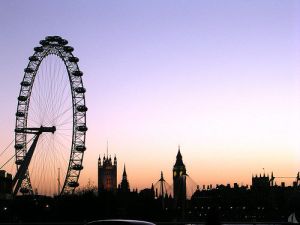 On May 6th 2010, Labour won by a small landslide.
On May 6th 2010, Labour won by a small landslide.
Yes, you did read that correctly. Because as the party fell to defeat in parliamentary seats across the country, it swept to power in London borough after London borough. Before the elections, of 32 London boroughs, Labour had majority control of just 7, running a further one in a coalition and one more as a result of having the elected mayor. By the evening of Friday 7th May, Labour had overall control of 17 boroughs, running one more as a minority administration. In 9 of the remaining 14 boroughs, Labour increased its number of seats. Eighteen months before the elections, I suggested that if the general and local elections were to coincide, this might prove to be to Labour’s benefit. So it turned out, but the results were far beyond what I predicted in that post. There is something more than just an increased turnout behind these very good results; and I believe that it has a direct bearing on how Labour councils in London, both newly-elected and returned, should conduct themselves over the next four years.
The easy answer to ‘Why did Labour do so well in London’ is that the party’s core vote turned out. But the core vote cannot deliver 18 boroughs – in reality (as was tested in 2006), it can be guaranteed to deliver about 5 boroughs. What turned out across London on May 6th was what I will describe as the ‘Core+’, a coalition of broadly progressive forces more akin to that which delivered two Livingstone victories than to that behind the 1997 landslide. With a Conservative victory nationally seen as certain, voters with personal or political reasons to fear the onset of Osbornomics (the radical, ideology-driven downsizing of the state using deficit reduction as a pretext) turned out, only partially in hope of preventing this, but equally to try to ensure that savage cuts would be opposed at a local level. For better or worse, this coalition of forces overwhelmingly saw Labour as the party best placed to deliver that opposition. (more…)
 Two years and half way through Boris Johnson’s first – and I trust, only – term as London Mayor and the opposition parties on the London Assembly rightly took the opportunity last month to step up scrutiny of the Mayor’s…ahem…interesting approach to his manifesto pledges.
Two years and half way through Boris Johnson’s first – and I trust, only – term as London Mayor and the opposition parties on the London Assembly rightly took the opportunity last month to step up scrutiny of the Mayor’s…ahem…interesting approach to his manifesto pledges.

 Much
Much 
 A few weeks ago, I took Tory London Assembly Member Roger Evans
A few weeks ago, I took Tory London Assembly Member Roger Evans  At last the Dodo said, `EVERYBODY has won, and all must have prizes.’
At last the Dodo said, `EVERYBODY has won, and all must have prizes.’ 
